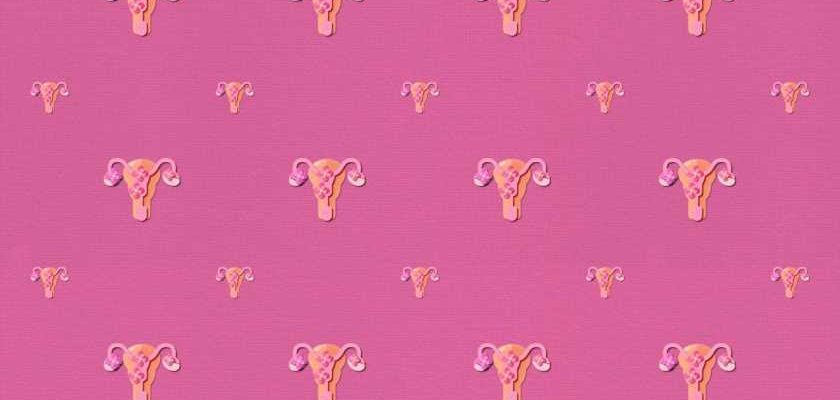Have you stopped having periods but are still interested in tracking your menstrual cycle? Here’s everything you need to know, according to a gynaecologist.
More and more women have started to track their menstrual cycles recently for a whole host of different reasons. Doing so can help you monitor your symptoms during your cycle and notice patterns, like headaches and tiredness, at particular points in the month, helping you to be more aware of your overall health. Many people also track their cycle when they’re trying to conceive in order to figure out when they’re most fertile, and keeping track of your menstrual cycle can also help you to improve your overall fitness and workout regime.
Tracking your menstrual cycle is something most people do based on their periods – but is it possible to track your cycle if you don’t have a monthly bleed? It’s very common to lose your period. In fact, as part of their No Period Pants campaign, a new study commissioned by Love Fresh Cherries found that two-thirds of women in the UK have lost their periods for three months or more for reasons that include stress and under-eating.
You may also like
Period problems: “How I got my periods back after 2 years by reducing chronic stress”
And there are many other reasons you might not have a period including, for instance, if you take the pill continuously or use another form of contraception that temporarily halts your period.
So, here’s everything you need to know about tracking your menstrual cycle even if you don’t have a period.
What is the menstrual cycle?
Let’s take it back to basics: the menstrual cycle is the monthly cycle a person with ovaries experiences in preparation for pregnancy and during the cycle one of the ovaries releases an egg.
“Day 1 of the menstrual cycle is the first day of your period, and most women have a cycle length between 21-35 days,” explains Sarah Welsh, a gynaecologist and founder of the sexual wellness brand Hanx. “The menstrual cycle has four phases, governed by changes in hormones, and these phases include menstruation (aka your period), the follicular phase, ovulation and the luteal phase.”
If a sperm does not fertilise your egg during your cycle (ie if you don’t get pregnant), then the cycle will repeat itself.
Welsh adds that: “There are many conditions that can affect the length of the menstrual cycle and fertility, and symptoms (such as pain and heavy bleeding) can be managed with support from your doctor.”
What are the benefits of tracking your menstrual cycle?
Many people track their menstrual cycle when they think they are having health issues that could be related to it. These issues include but are not limited to:
- PMS
- acne
- mood swings
- headaches
“Tracking your cycle allows you to see and manage trends throughout your cycle, as well as identify your fertile window and when you will likely ovulate,” explains Welsh. “Menstrual tracking can allow you to plan your lifestyle according to your cycle and be in touch with your body and the hormonal changes it experiences throughout the cycle.
“It can also be very helpful in picking up when anything is not quite right,” Welsh continues. “This is because you can use this record when speaking with a healthcare professional to showcase any symptoms or unusual changes.”
How to track your menstrual cycle if you don’t have periods
Tracking your cycle generally involves keeping a record of when you’re on your period, if you have any symptoms and making a note of any vaginal discharge or spotting. “Some women also record their basal body temperature as this can increase slightly when you ovulate,” Welsh adds. You can measure this using a digital oral thermometer.
“If you don’t have a period, you can still track your cycle, but it can make it extremely difficult to identify ovulation,” Welsh says. “Ovulation and periods naturally go together, but it is possible (albeit unlikely) to ovulate without having a period.
“Depending on why you don’t have periods, you may still have cyclical symptoms and changes in hormones throughout the month, so you can discuss with your doctor about tracking,” Welsh continues to explain. “It may be that after a few months you may start to identify some patterns, which you find helpful.”
You may also like
Exercise and your period: how to maximise your workout according to your hormones
However, if the reason you don’t have periods is down to contraception, such as the pill, this might make it particularly difficult to track your periods. “The very role of contraception is to alter your hormones,” Welsh says, explaining that your menstrual cycle will be altered by this and therefore might not be consistent.
There are some things you can keep track of when it comes to monitoring your cycle, even if you don’t have periods, though. For example, you can make a note of:
- whether you have had sex (protected or unprotected)
- any tests you’ve done (such as ovulation tests)
- any contraception you’ve used
- other events you feel may have impacted your period or fertility.
You can make a note of these things either using a pen and paper or by using a period tracking app. Most people track their period on an ongoing basis. However, you might be able to notice patterns after the first few months of doing so.
For more health and wellness tips and advice, head to the Strong Women Training Club.
Images: Getty
Source: Read Full Article
